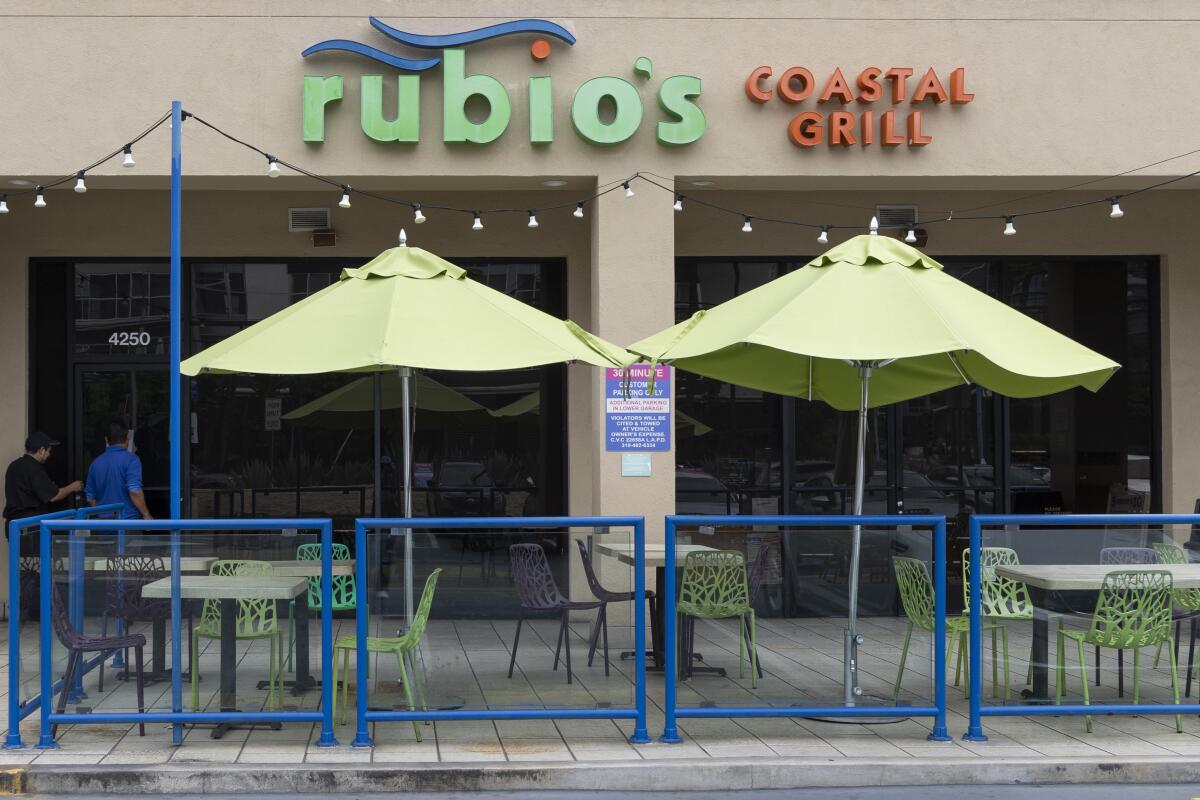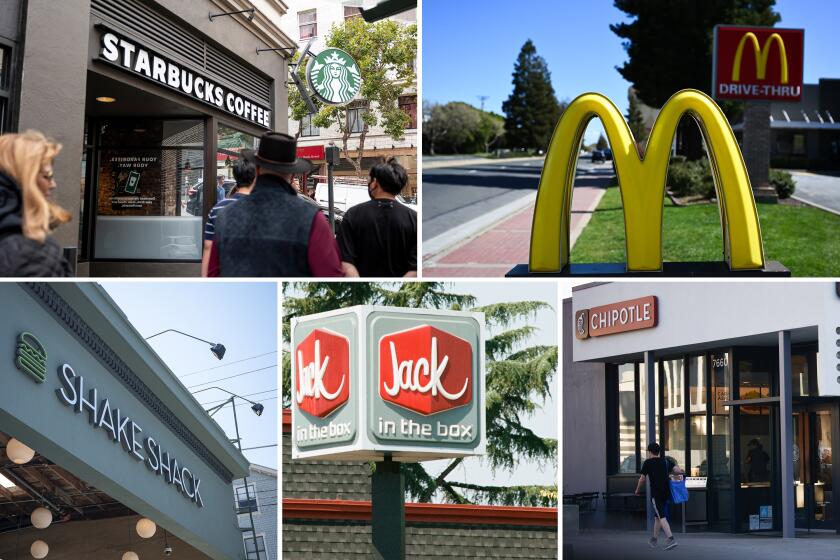Rubio’s Coastal Grill, citing rising business costs, abruptly shuts down 48 restaurants in California

It was a food concept that had Southern California written all over it.
As a college student in San Diego, Ralph Rubio discovered fish tacos while on spring break in Baja California. And in 1983 he opened a modest walk-up stand, helping popularize fish tacos in the country and seeing his business, known over the last decade as Rubio’s Coastal Grill, grow to about 200 restaurants in California and several other states.
But the pandemic slammed the company, prompting it to shut down restaurants in Florida and Colorado. Rubio’s also has been struggling under the shadow of Mexican restaurant giant Chipotle in the hyper-competitive segment known as fast casual. And then there were the costs: rising food prices and increasing worker wages.
On Monday, Rubio’s confirmed that it had closed 48 of its California restaurants on Friday — more than a third of its already slimmed-down chain of 134 restaurants.
Rubio’s, in a statement Monday issued by media strategist Sitrick & Co., attributed the closings to the rising cost of doing business in California.
The company did not elaborate on the closures, which stunned some workers, but said they were “underperforming.” The move came two months after the state’s $20 an hour minimum wage took effect for fast-food employees.
With the state’s mandatory minimum wage for fast-food workers set to increase to $20 an hour, many restaurant chains are preparing to raise prices.
The company statement said the decision came after a “thorough review of its operations and the current business climate.” A Sitrick spokesperson said no Rubio’s executive would be available to comment.
The closing marks the latest sign of distress in a restaurant industry that has been squeezed by the effects of inflation and higher labor costs.
The iconic seafood chain Red Lobster — in a segment known as casual dining — filed for Chapter 11 bankrutpcy last month after closing dozens of locations.
Restaurants are also seeing signs of some consumer pullback, particularly among lower income households. Unemployment has climbed in California, and many consumers have taken on more debt as they’ve run down their savings that were bolstered by pandemic stimulus checks.
Rubio’s did not say how many employees were let go, but comments posted on social media by employees said they were given no notice, with some saying they received phone calls over the weekend that their jobs had been eliminated.
Rubio’s said it would keep operating 86 remaining locations in California, Arizona and Nevada.
Rubio’s was acquired by the private equity firm Mill Road Capital in 2010 for $91 million and taken private. In the fall of the first year of the pandemic in 2020, the company filed for bankruptcy protection and underwent a complete restructuring. Rubio’s attributed the problems to higher costs then as well, citing minimum wage increases specifically as a factor.
Rubio’s previously went by the names “Rubio’s Baja Grill” and “Rubio’s Fresh Mexican Grill.”
It took on its current iteration, Rubio’s Coastal Grill, in 2015.
“Rubio changed its name to emphasize seafood and differentiate itself from Chipotle, the monster in the room,” said Alan Gin, an economics professor at the University of San Diego Knauss School of Business.
“Given all these closings, the name change apparently didn’t make a big difference,” he said.
Rubio’s, in its brief statement Monday, said: “While painful, the store closures are a necessary step in our strategic long-term plan to position Rubio’s for success for years to come.”
More to Read
Inside the business of entertainment
The Wide Shot brings you news, analysis and insights on everything from streaming wars to production — and what it all means for the future.
You may occasionally receive promotional content from the Los Angeles Times.












